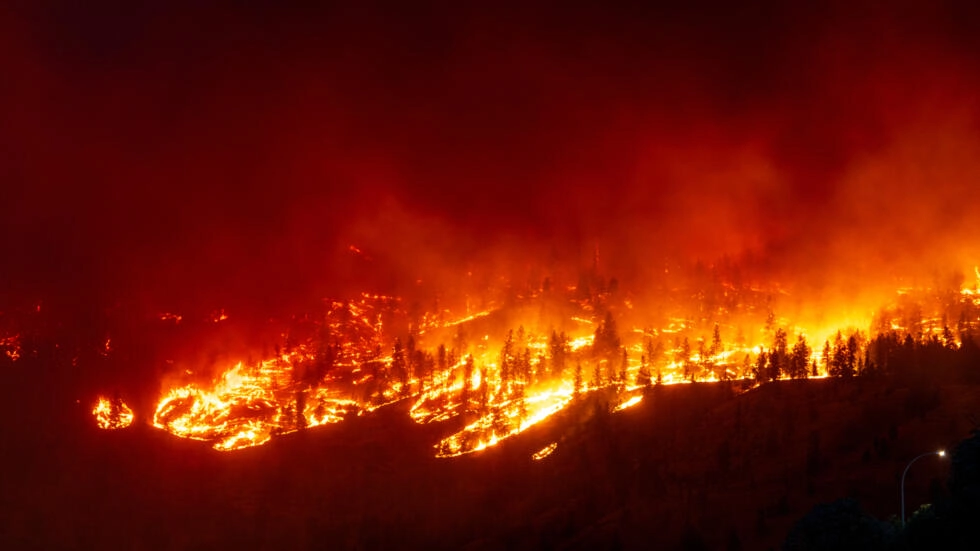Noopur Bhandiwad, Pune
Scientists have found that the conditions which led to extreme wildfires that spread in Canada, as well as some parts of the US may have risen and created twice as likely due to the climate crisis caused by humans.
Some of those fires, that left behind a blanket of toxic smoke, were caused by the hot, dry, and windy weather. Now, the new study has provided a preliminary scientific assessment that climate change may have intensified the fires. The World Weather Attribution group, a research organisation based out of Imperial College, London, discovered that the chances of a fire breaking out are twice as likely and 20% more intense in Canada.
Canada experienced record-breaking fires that covered 59,000 square miles across the country this year. Nearly 1 out of 200 Canadians had to be evacuated from their homes. The devastating fires also caused several fatalities and contained smoke that travelled as far as Norway. For a brief time in June, it also painted the sky above New York City orange.
The attribution study, conducted by a group of scientists in Canada, the UK, and the Netherlands, looked at the link between human-caused climate change and fire weather that set the conditions for a spark to turn into a blaze. Dr. Yan Boulanger, a Research Scientist at Natural Resources Canada, said, “What is shocking from a scientific perspective is the doubling of the previous burned area record. Climate change is intensely increasing the flammability of the fuel required for wildfires. Thus, even a single spark, regardless of its source, has the potential to escalate into a blazing inferno.”
Recent studies suggest that the heat waves that struck the US, Europe, and China this year would not have been possible without the conditions caused by the climate crisis. The number of wildfires will decrease only if we stop burning fossil fuels, Friederike Otto, a climate scientist at Imperial College, London said.
